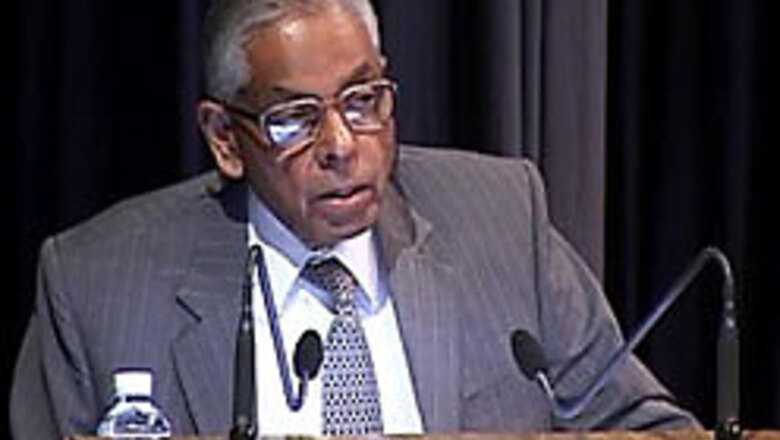
views
New Delhi: India hailed as "momentous" a global atomic cartel's decision on Saturday to lift a 34-year-old ban on nuclear trade with New Delhi, a crucial step to sealing the controversial Indo-US civilian nuclear accord.
The 45-member Nuclear Suppliers Group (NSG) meeting in Vienna, adopted a one-off waiver proposed by the US, allowing atomic business with India even though it has not signed the non-proliferation treaty and has tested nuclear devices.
Reacting to the development, National Security Advisor (NSA) M K Narayanan said that he was really happy India got the waiver.
“I am happy. We had asked for a waiver and we have got it. I have made small contribution to it. The Ministry of External Affairs (MEA) will have a meeting later and you can ask me questions after that,” he said.
Speculation was rife that China too was among the countries that did not support the waiver to India. However, while Austria, New Zealand and Ireland made their disapproval public, China did not.
Disappointed with China, Narayanan also said that India would make its displeasure known Chinese Foreign Minister who will begin his three-day India visit from Monday.
“India will express its displeasure to Chinese Foreign Minister. India still has concerns over fuel supply assurances with us. There were many times during the last 48 hours that the deal may not come through. We are very grateful to the US for the outstanding job they did in Vienna,” adds Narayanan.
CNN-IBN’s Foreign Affairs Editor Surya Gangadharan explained how the other dissidents made it difficult for India at the NSG.
“Austria and New Zealand were very firm, we have to wait and see, how much they have contributed to the waiver. There were many diplomats involved, who have toiled for this deal. PM’s Special Representative Shyam Saran, Foreign Secretary Shiv Shankar Menon, Member, Indian mission in Geneva DB Venkatesh Varma, etc to name a few. After 34 years of nuclear isolation, this is a milestone achievement and this, amidst the apprehensions in the MEA,’ says Gangadharan.
After the approval came, former diplomat G Parthasarthy explained China’s stand.
“ I am happy because this is extremely important for India. I am sure US Congress is for it, the Chinese govt didn’t want the deal to happen and they did try their best to cut this deal off. Just that they did it secretly because they didn't want to come face to face with the US,” says Parthasarthy.
Editor-in-chief CNN-IBN Rajdeep Sardesai also congratulated the government for getting the waiver.
“It is a great achievement for the Indian government and Indian civil society has to celebrate. This will be a major call card UPA will use for the next elections. The opposition will have to think hard as to how would they oppose to it. In a sense thus us also a achievement for Vajpayee who always stood for strong International relations. However we have to see the fial draft to see how much has been conceded,” says Sardesai.
But the deal still has one hurdle to clear. The US Congress must ratify it before adjourning later this month for elections, or it will be left to an uncertain fate under a new US administration.
The fuel and technology deal would help India meet exploding energy demand in an environmentally sound way and open a nuclear market worth billions of dollars.(With inputs from CNN-IBN and Agencies)


















Comments
0 comment